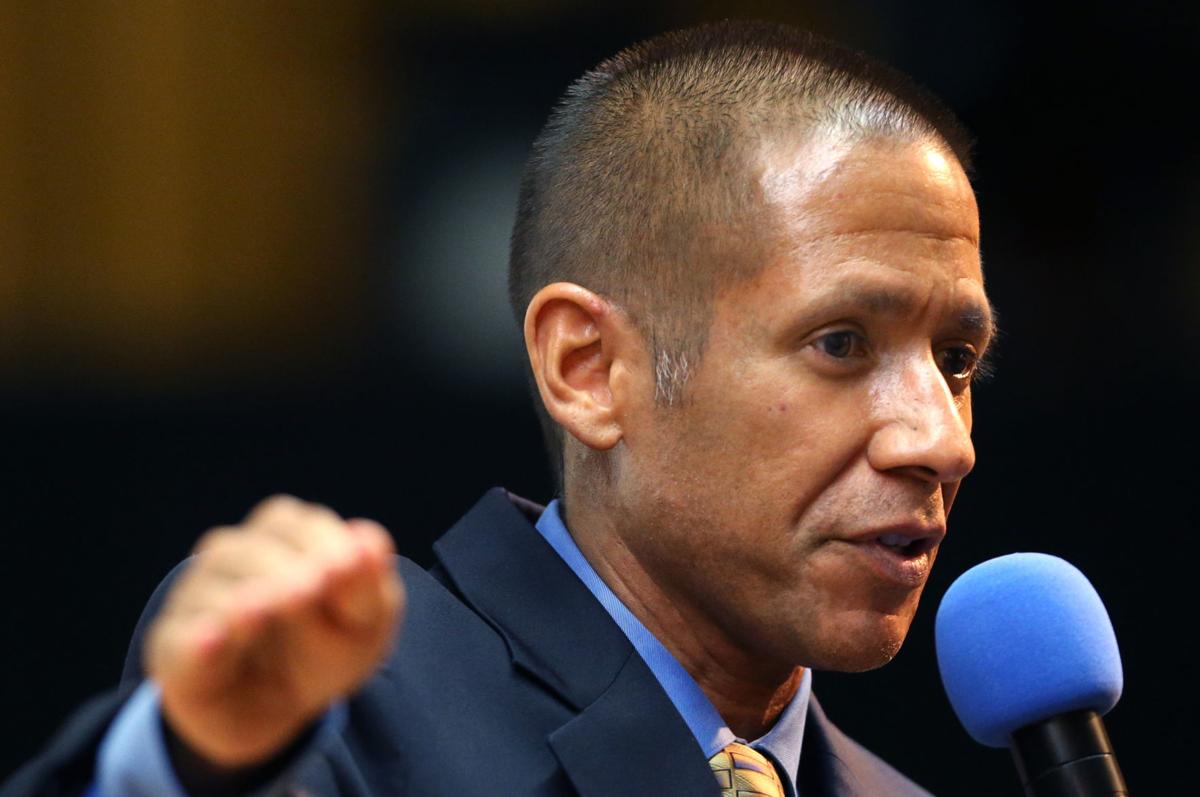In an unusual move aimed at testing the constitutionality of a state-imposed property tax increase, the Pima County Board of Supervisors on Tuesday invited the Tucson Unified School District to sue them over desegregation funding.
At stake is who, if anyone, will pay roughly $16 million to $18 million of TUSD’s desegregation funding — about a quarter of the district’s annual desegregation budget.
For decades, the state has picked up the tab. But under the Arizona budget approved by Republican lawmakers and signed by Gov. Doug Ducey, that burden will fall squarely on local homeowners, who will see a sharp increase on their property tax bills.
The new state budget shifts the district’s desegregation levy from a primary to a secondary property tax. That matters because the state constitution limits primary property taxes that a city, county, school district and others can collect to 1 percent of a property’s full cash value.
Currently, the county offers homeowners a credit for any taxes above 1 percent, and the state makes up the difference via “additional state aid” to the school district.
Secondary taxes — which are defined as bonds and overrides — are not included in that calculation and are not subject to the 1 percent cap.
The change means homeowners in TUSD’s boundaries would see a sharp increase on their tax bill of $126 per $100,000 of assessed value to cover those costs, according to county estimates.
Nearly 100,000 homeowners inside TUSD boundaries would be affected by the tax increase. Business property taxes would be unchanged.
But after County Administrator Chuck Huckelberry warned that he believes the tax shift is unconstitutional, the Pima County Board of Supervisors voted unanimously Tuesday to refuse to implement that provision of the state budget.
That set up what TUSD Superintendent Gabriel Trujillo called a “friendly disagreement,” which TUSD can use to file a lawsuit against the county and the state and get a legal decision on the issue, hopefully one that would force the state to continue providing the desegregation funding.
At the heart of Huckelberry’s argument is that adding desegregation funds to secondary property taxes would be illegal, since lawmakers did not also change the definition of secondary property taxes, defined as bonds for long-term debt and voter-approved overrides — not desegregation.
The county won’t collect what it considers an “illegal tax” from local homeowners, he said, and will still calculate the state’s share of additional state aid to TUSD as if the new provision didn’t exist, though they don’t expect the state to pay the bill without a legal fight.
Huckelberry noted that it’s unusual to invite a lawsuit, but after talking it over with TUSD representatives, both sides decided this was the best way to get legal guidance on how to proceed.
By making the decision now, that will allow TUSD to file a declaratory judgment against the county and the state asking the court to either order Pima County to levy the secondary property tax, or order the Arizona Department of Revenue to pay the additional-state-aid as it has for almost 40 years, Huckelberry explained in a memo.
After sitting down with county officials late last month and discussing it, Trujillo was supportive of the board’s move to not collect the additional taxes — even though on paper that means TUSD would miss out on millions in desegregation funding. That’s because it was the only “sure-fire way to get an expedited resolution” to the looming question of whether the tax provision is unconstitutional.
And time is of the essence. The county must set the tax rates by Aug. 20 and TUSD has to adopt a budget by July 1.
The loss of those funds would be debilitating to TUSD’s efforts to meet the demands of the court in its longstanding desegregation suit, Trujillo said.
While it’s not clear what exactly would have to be cut if the taxes are not collected, desegregation funding is designed to support core initiatives for Latino and African-American students, including maintaining and promoting student diversity, improving academic achievement and ensuring equal access to schools, programs and activities.
The threat of losing those funds, which support court-ordered programs, may allow the federal courts to step in on TUSD’s behalf, Trujillo said.
The TUSD Governing Board has not discussed what it will do if forced to make those cuts, nor has the board made a decision about how it will proceed following the county’s move. Trujillo expects the board to take that up June 26.





